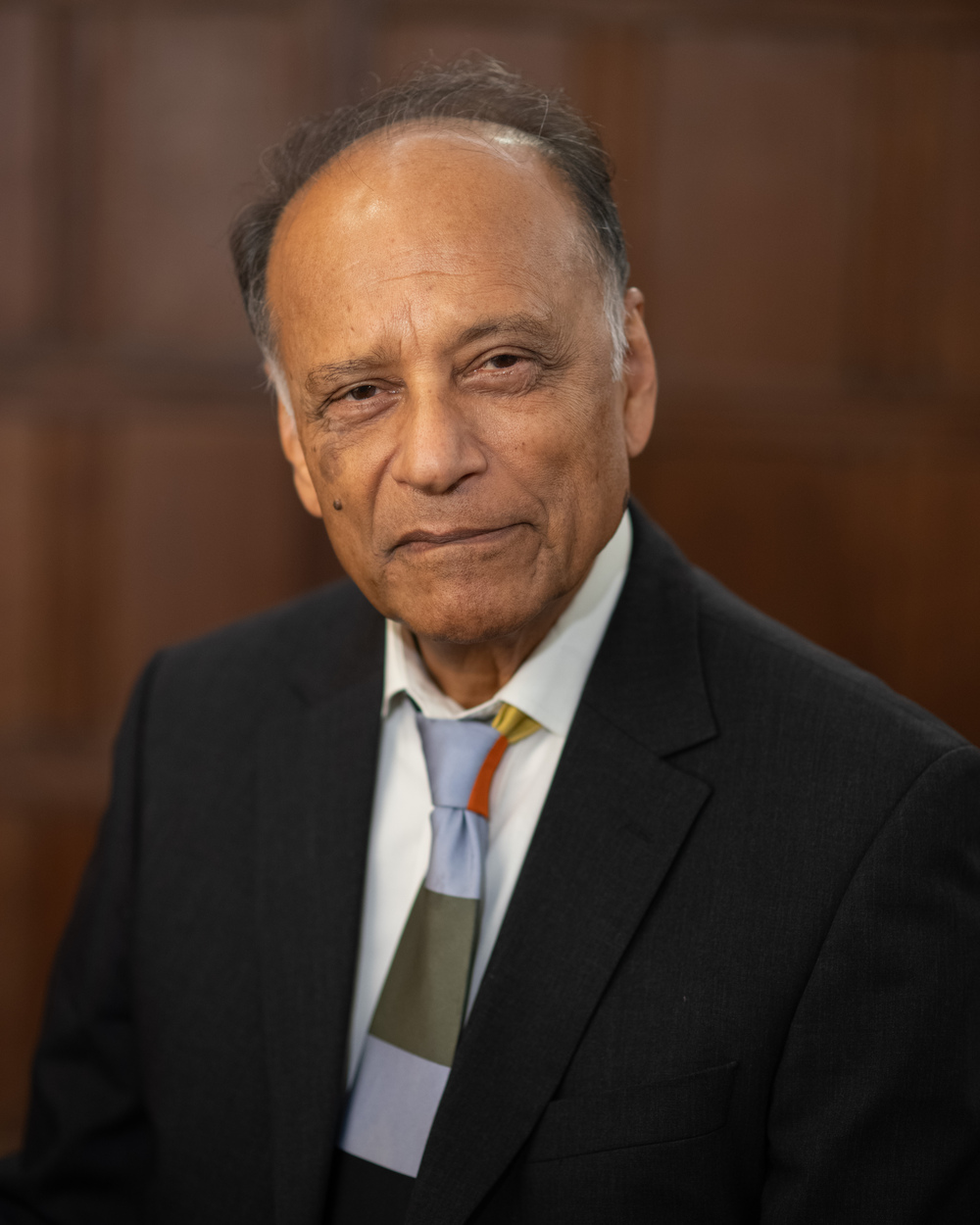
Fellow type
Honorary FellowPositions
Honorary Fellow (former Fellow in Economics 1967-75)
Biography
Partha Dasgupta, who was born in 1942 in Dhaka (now in Bangladesh) and educated in Varanasi, Delhi, and Cambridge, is the Frank Ramsey Professor Emeritus of Economics at the University of Cambridge and Fellow of St John’s College, Cambridge. His publications include The Control of Resources (Harvard University Press, 1982); An Inquiry into Well-Being and Destitution (Clarendon Press, Oxford, 1993); Human Well-Being and the Natural Environment (Oxford University Press, 2001; revised edition, 2004); Economics: A Very Short Introduction (Oxford University Press, Oxford, 2007); Time and the Generations: population ethics for a diminishing planet (Columbia University Press, 2019); and most recently The Economics of Biodiversity: The Dasgupta Review (London: HMTreasury), 2021, which was a global independent review, commissioned by the UK Treasury.
A collection of his scientific papers has been published in a two-volumes set, under the title, Selected Papers of Partha Dasgupta: 1, Institutions, Innovations, and Human Values and 2: Poverty, Population, and Natural Resources (Oxford: Oxford University Press, 2010). He has been presented with two festschrifts: Environment & Development Economics: Essays in Honour of Sir Partha Dasgupta, eds., Scott Barrett, Karl-Goran Maler, and Eric S Maskin (Oxford; Oxford University Press), 2014, and Sustainable Consumption: Multidisciplinary Perspectives in Honour of Sir Partha Dasgupta, eds., Dale Southerton and Alistair Ulph (Oxford; Oxford University Press), 2014.
Professor Dasgupta is a Founder Member the South Asian Network for Development and Environmental Economics (SANDEE), Kathmandu, established in 1999. He helped to establish the journal Environment and Development Economics, published by Cambridge University Press, whose purpose has been not only to publish original research at the interface of poverty and the environmental-resource base, but also to provide an opportunity to scholars in developing countries to publish their findings in an international journal.
He is a Fellow of the British Academy (1989), Fellow of the Royal Society (2004), Member of Academia Europaea (2009), Foreign Honorary Member of the American Academy of Arts and Sciences (1991), Foreign Associate of the US National Academy of Sciences (2001), Fellow of the World Academy of Sciences (TWAS), 2001, and the American Philosophical Society (2005); Member, Academia Europaea, 2009; and a past President of the Royal Economic Society (1998-2001), the European Economic Association (1999), the European Association of Environmental and Resource Economists (2010-11). Dasgupta was named Knight Bachelor by Her Majesty Queen Elizabeth II in her Birthday Honours List in 2002 for “services to economics”; was co-winner (with Karl-Goran Maler of the Beijer International Institute of Ecological Economics, Stockholm) of the 2002 Volvo Environment Prize; was recipient of the John Kenneth Galbraith Award, 2007, of the American Agricultural Economics Association, the Zayed International Environment Prize, 2010; the 2015 Blue Planet Prize; the 2016 Tyler Prize; and the Kew International Medal, Royal Botanical Garden, Kew, 2021. In January 2023 Dasgupta was named Knight Grand Cross of the British Empire.